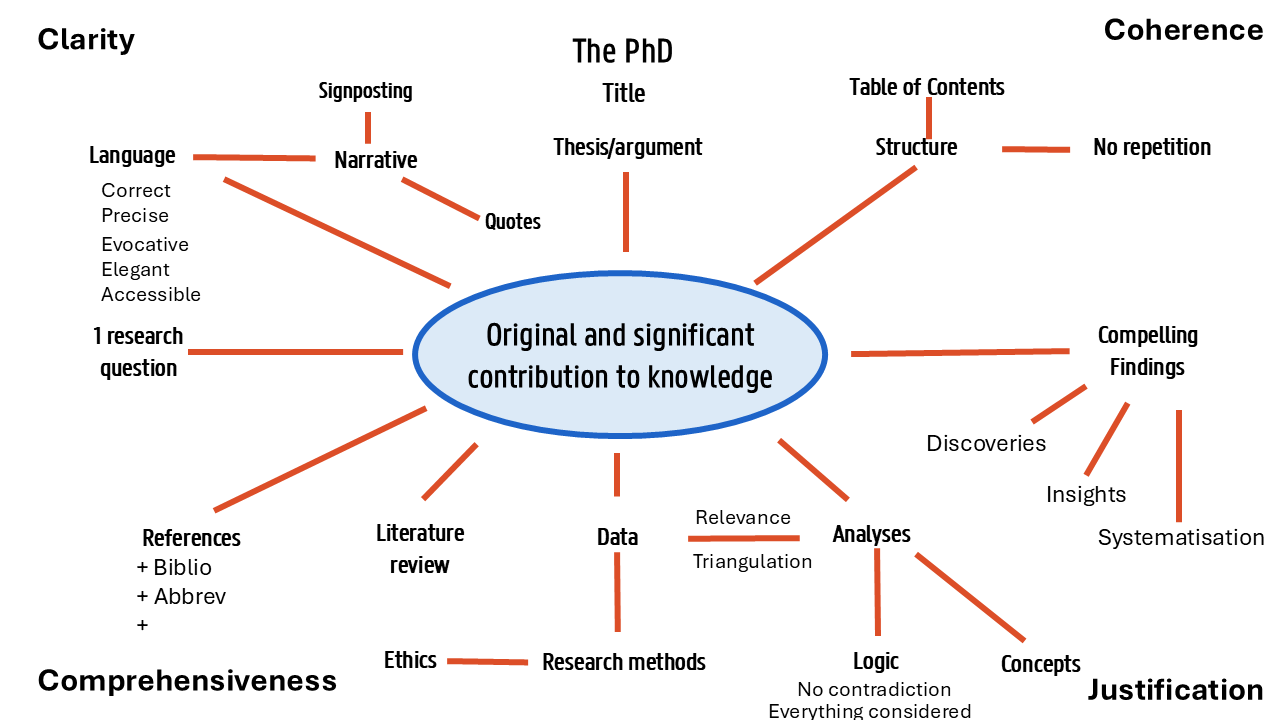Marie-Bénédicte Dembour
This post is not about evidence in international human rights adjudication, but about what examiners are looking for in a PhD (whatever the discipline). It links to a recording where, powerpoint click by powerpoint click, I explain what doctoral examiners are looking for – and thus what you as a doctoral student should be striving to deliver.
In short, you will earn your doctoral degree if you convince your examiners that your dissertation constitutes a significant and original contribution to knowledge.
Concretely, this will require you to have identified one (and ideally, only one) research question, and to have generated compelling findings in answer to this RQ (and nothing else).
For your findings to be assessed to be compelling, you must have (sufficiently) respected the four ‘cardinal virtues’ of a scholarly study: coherence, justification, comprehensiveness and clarity.
In turn, for these virtues to be recognised to have been sufficiently respected, you will have had to pay attention to a number of various elements, as represented in the following diagram, explained in this 10-minute video.

